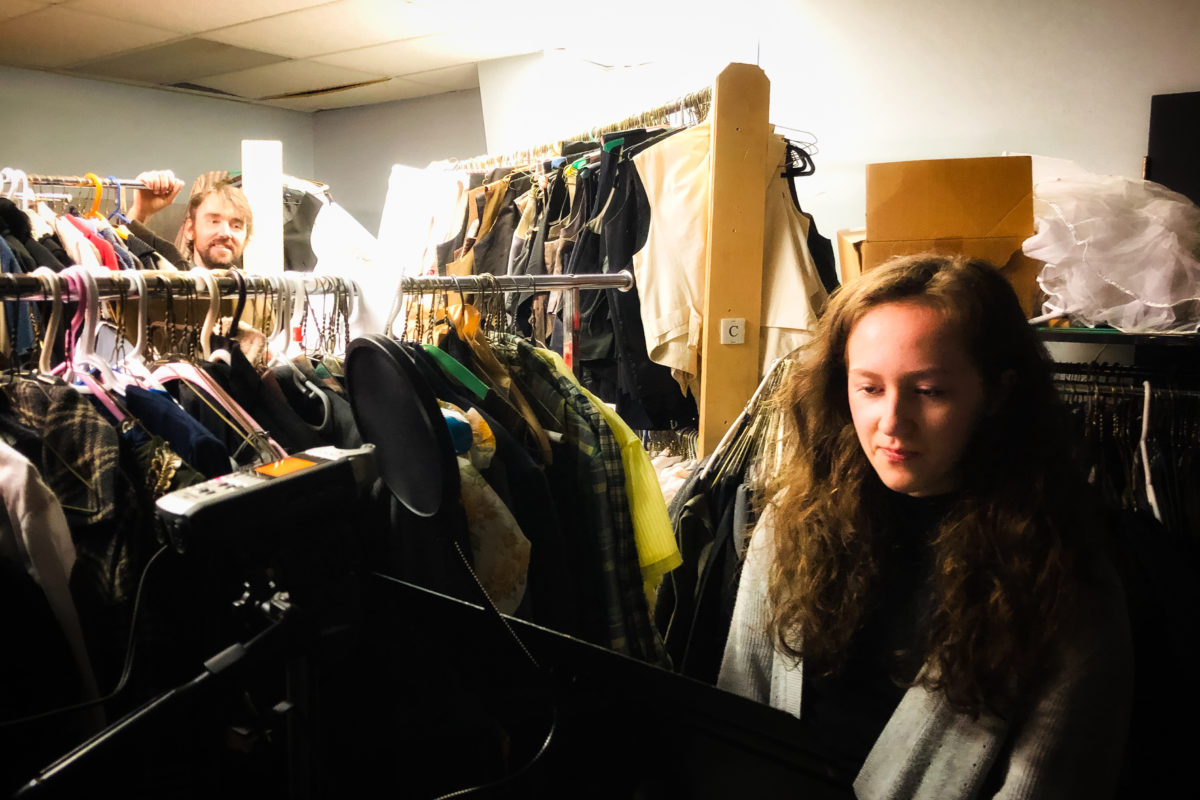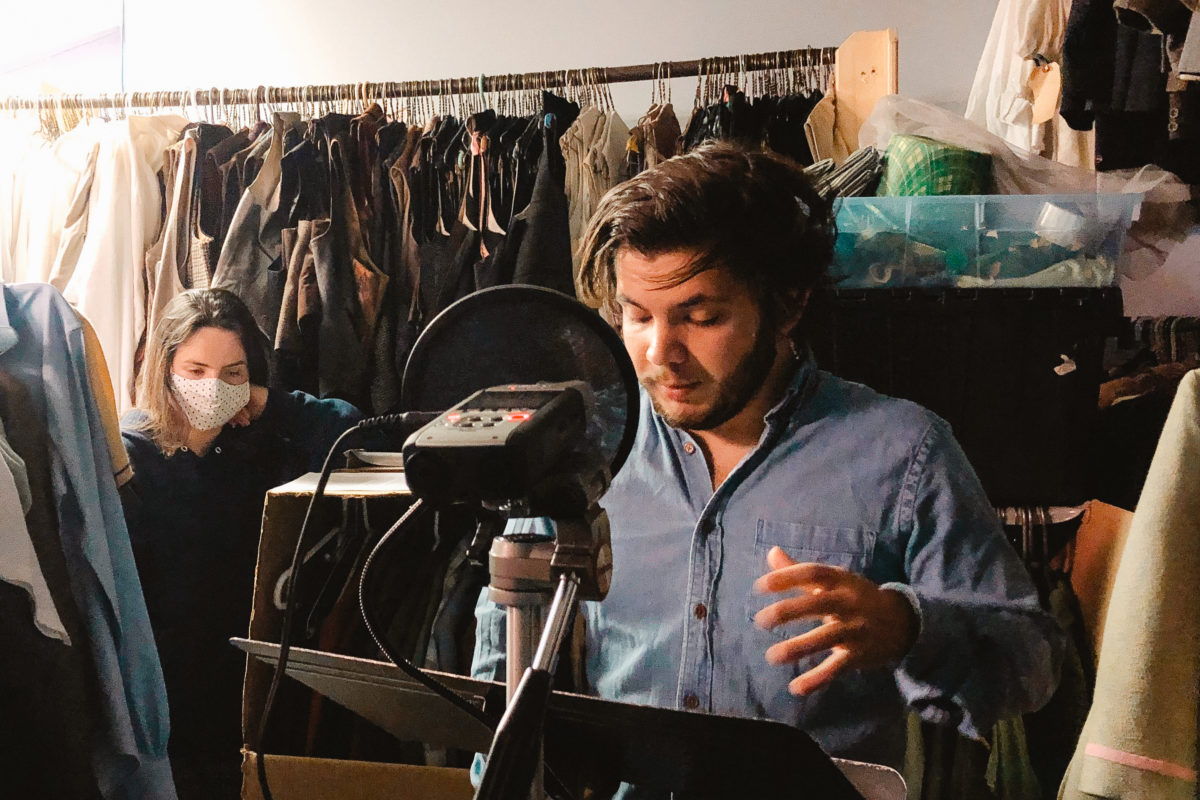
Ryan Griffith’s Fortune of Wolves is moving from stage to sound with the play reimagined as a podcast series. Presented by Theatre New Brunswick, the podcast features a number of monologues and more than 60 characters.
Griffith and Matt Carter, director of development and communications at TNB, decided to pitch the idea of turning the play into a podcast.
“The main hope was that it would bring the arts community together and give them a project that we could all work on as a community,” said Carter. “But it’s grown since then. Now I just hope everybody listens to this podcast … it worked better than I had imagined.”
Unlike the play which included four characters randomized by dice each night, the audio version will include all 66 characters and monologues Griffith wrote.

The play is about Lowell Garrish, a young man who lost everything — first his parents and more recently his grandmother. With nothing to do, Lowell decides to embark on a road trip across Canada, where he meets various characters who he interviews during his trip.
“I want the script to draw attention to the fact that people do need people,” said Griffith. “We are still always better with other people around, even if we tell ourselves we are self-reliant.”
The play was easier to convert into podcast format due to its unique composition — each episode portraying a chapter of the play.
Their original idea for the podcast was to have everyone record the monologues by themselves, email them and then piece the clips together. But their idea did not work out as planned.
With everyone’s different devices and recording platforms, the audio turned out inconsistent and it took the team 13 months to finish the project.

Carter said Griffith came up with a process where they would be with the performers while they read the monologues for the first time. Then Carter and Griffith would leave the room and let the actors do it again on their own.
“It took us a little while to find our groove because for me and Matt, this was our first time attempting a project like this, and it is a pretty big project,” said Griffith.
He said he wanted to write an innovative play that would differentiate itself from the typical two-act structure of a play and that’s why he focused on monologues.
Griffith wanted to shed light on Canadian cities not many people knew about. According to him, the play’s Canadian identity was an important factor in the story.
“We are very excited and nervous. When you put something out to an audience, there’s always a bit of uncertainty. You work so much to get your idea across and there’s always that little worry, ‘did I nail it as hard as I could?’” said Carter.
